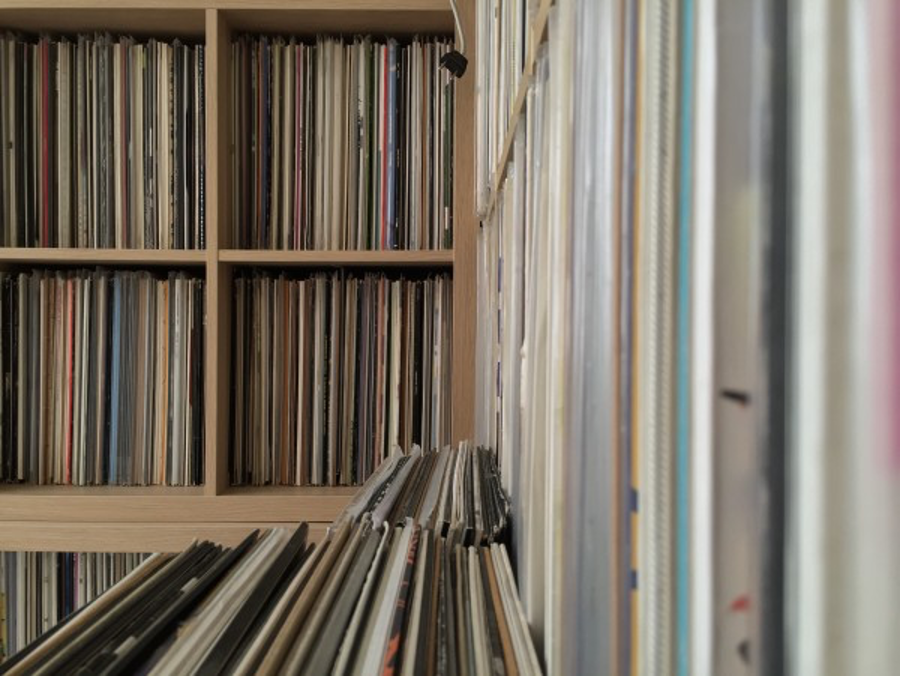“In Russia (…) the young generation of electronic artists works quite independently from each other. They have their own interests and that’s probably the reason why it is hard to define a cohesive internal music scene. I don’t see this as a limit but perhaps this aspect slowed down the process of getting the contemporary Russian music identity recognized internationally.”
6AM - Andrey Pushkarev picks the top 5 records from his 10000 plus vinyl collection
Chapter 1: A progressive emergence
The landscape of Electronic Music in Eastern Europe, though constantly growing and filled with fantastic talents, keeps being ignored or underestimated on the mainstream stage. In a way ideal for the complacency of those who can brag about their last track discovery like a winning trophy, this stalled techno market and the lack of visibility artists experience prevent many from living of their productions. Faced with the realities of the Economy, too often they stop their activities or keep mixing in the dark due to the incapacity to distribute their creations worldwide.
Far from the usual networking and the exposure to international festivals, Andrey Pushkarev has built a reputation based solely on his mastering of Djing tools and his extensive musical knowledge. The Russian was born in 1981 in a tiny little town of the Pre-Ural region, and started self-educating himself to the practice of DJing at around 15. 10 years later, he was a resident DJ for DeepMix Moscow, a web radio broadcasting non-commercial techno music for free. With listeners from more than 50 countries, Andrey got a visibility that enabled him to perform abroad for the first time. By overseeing the import of vinyl and DJ gear into his country for the German distribution company TraumBaum, he progressively built a collection of now almost 9,000 records.

Chapter 2: The dark side of the mood
Considering himself more as a DJ than a producer, Andrey still managed to wear the two hats and create a deep and resonant atmosphere immediately identifiable from the first beats. Back then, DJing was more perceived as an evening host whose only goal was to help people socialise. But as time went by, music played in clubs found its own codes and a real industry emerged. DJ became artists, their names could attract a public more than the venue itself. Their role changed and the expectations as well. They are expected to create their own identity, produce their own music, build a network and adapt to technological evolution. They no more play music, they are music.
Russia hasn’t been an exception to the evolution. The peculiarity, however, is how confined the industry remains. Electronic Music emerged through independent micro-performances, split and contrasted, impinging a feeling of unification. One tends to attribute it to a lagging development, a refusal of Western culture during the Soviet era, or some more geodemographic issues such as Russian language and culture (relatively confined to the country).
The Eastern scene has this particularity of gathering a huge diversity of talents with their own universe and a relative wish of remaining independent. What seems a great side in terms of creativity shows itself to be slightly problematic when it comes to building an artistic cohesion, and therefore, elaborating a “Russian genre” in the Electronic Music scene.
“The government tolerates unofficial culture, but it doesn’t support it in any fashion.”
fabric London - Andrey Pushkarev introduces his pensive playing style
Chapter 3: One label, one movie, one huge repertoire
Nowadays, Andrey keeps developing his presence on the international scene with releases on foreign labels such as Endless Worldwide, Circus Company or Yoyaku. He created his label Luck of Access, where he distributes his best findings and innovative 1hr podcasts. Suddenly hit by the Covid-19 pandemic, we are happy to see him propose new content and gradually reopen his gates of discovery.
But more than that, a few years ago, film director Anatoly Ivanov made a documentary in 5 countries, Kvadrat, exploring the daily (realistic) life of a techno DJ. As the protagonist, Andrey got involved into that road movie with an air of biopic where the official image of DJing (night clubs and festivals) is revealed side by side with its hidden aspects (travels, life instability, fatigue, loneliness and stereotypes). Deprived of comments and explanation like a track without lyrics, Kvadrat invites the viewer to deep into a sensorial understanding and appreciate the motion picture as a piece of art rather than pure informative images. Despite its very low budget, Kvadrat contains stunning imagery, a complex sound work and several narrative techniques from fictional movies. You can watch it here:
Andrey’s work is deeply architectural. His musical touch is observable in the very structure of his tracks, built on singular mechanisms that hold the listener from the first beat to the last. There is no identifiable drop, no release of tension, giving his musical repertoire the odd charism he has himself behind the decks. Andrey masters his tools and he knows it. No need for unnecessary effects and overuse of lights and voices. He gives the listener the necessary amount of space to reflect upon what he listens but remains imprisoned in this very spatial universe.
"When I listen to a track for the first time? It’s mostly an intuitive process. I don’t especially mind the technique, sometimes it just sounds good. There is an emotional connection with some sounds or melodies and when they stimulate my imagination, I just know it is the track I need."